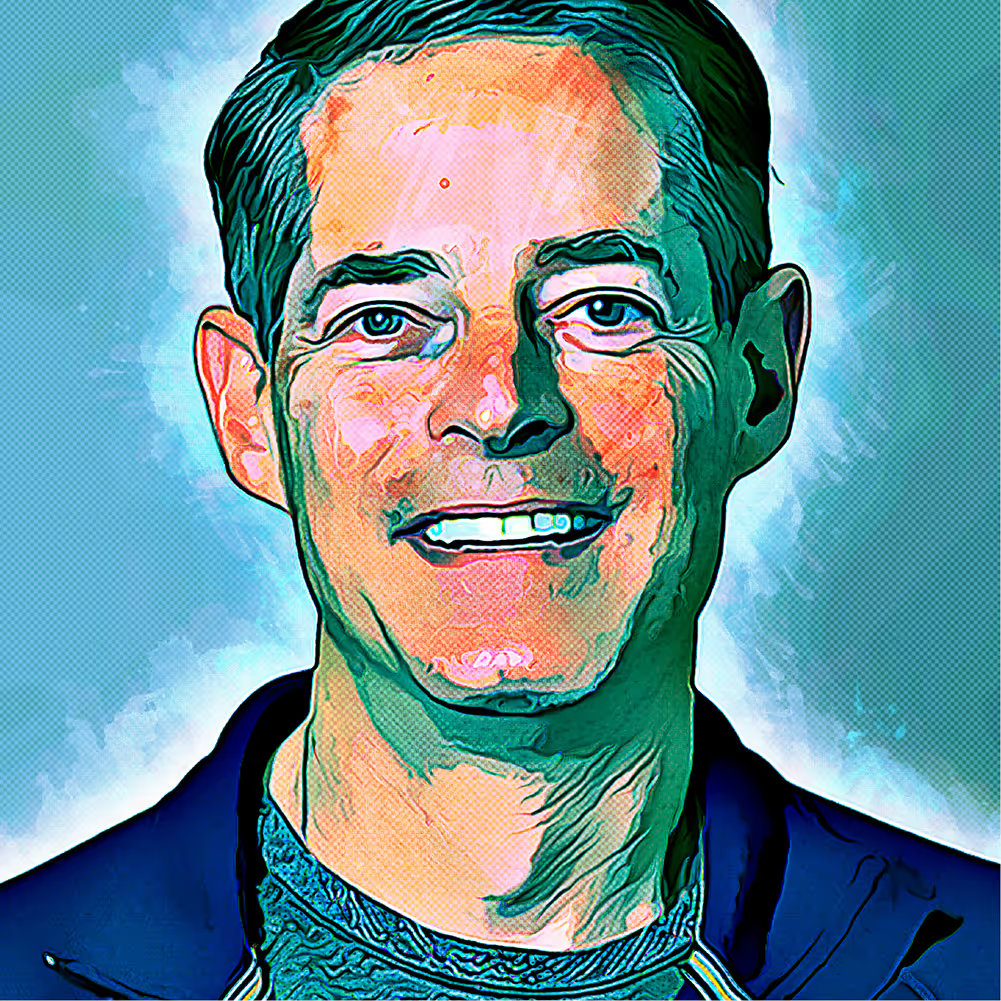Not so, says Warren Packard, who's empowering next-gen innovators to advance it.
Warren Packard hasn’t exactly seen the future, but he works alongside companies that are building it. As operating partner at AI Fund, a Silicon Valley venture capital firm and studio, Packard oversees early stage investments in dozens of artificial intelligence (AI) startups with lofty goals of making the world a better place. “We are very much focused on companies that move humanity forward,” he says of his fund’s impressive portfolio, which includes companies taking on complex challenges—from mental health and relationship coaching to optimizing fuel consumption and boosting manufacturing efficiencies.
Packard is a seasoned entrepreneur and venture capitalist who quickly assesses pioneers. He was an early principal investor in Tesla, SpaceX and Skype, among other groundbreaking companies. And, as the founder of two data-driven businesses and owner of 18 patents for his inventions, he’s uniquely suited to support the next generation of innovators. “The most important qualities are vision and an ability to tolerate pain,” he jokes of entrepreneurship. “There are lots of good times, but there are probably an equal number of difficult, painful times, and you just have to tough your way through it.”
Packard has been programming since he was a teenager on his first computer, an Apple IIe with 64 kilobytes of RAM. His current AI projects are considerably more powerful. Take a company called Esteam, which uses AI to conduct personalized reading assessments of elementary school students and then gives immediate feedback to the teachers and parents. Packard explains that teachers have limited time for one-on-one assessments, so Esteem’s platform is a game-changer. “Once you learn to read,” he says, “it opens up the world of learning.”
In health and wellness, AI Fund helps companies create the infrastructure and tools that enable healthier and longer lives, both physically and mentally. Packard cites a company in his portfolio called Woebot that works to improve access to mental health care. When human therapists are unavailable or too expensive, Woebot offers cutting-edge digital therapy that can respond to a patient’s dynamic state of health and quickly form a bond. “AI can’t ever be a complete substitute for a human being,” Packard says. “But for those who need therapy at a reasonable price with somebody who will always listen without an agenda, AI can fit the bill.”
Despite its many applications to advance humanity, Packard notes that AI can be used “for nefarious intent.” He stresses that his fund will not support ventures with a potential to do harm. The company took a page from the honor code at Stanford, Packard’s alma mater, which prohibits teachers from putting students in situations where they might be motivated to cheat. “We don't ever want to create a company that makes it easy for somebody to do something that would be negative towards humanity,” he says. “AI is here for the long run, and we need to pay close attention to what we’re creating and ensure that we’re investing in a positive future.”


.avif)
.avif)
.avif)